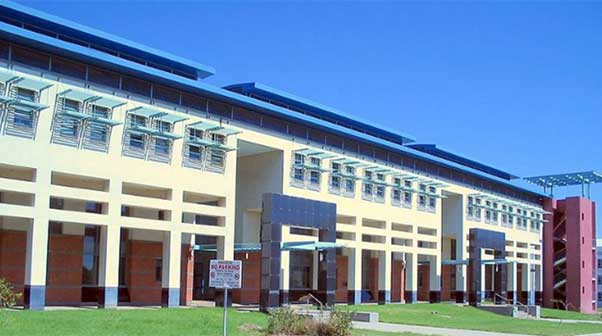
NUST launches new Agric-Science programme
The programme is set to be the first of its kind in the country, aiming to improve eiciency and productivity through technological applications.
Prof Sebata also mentioned that Nust aims to pioneer agro-industrial parks, which will serve as hubs for agricultural innovation and production.
Nusts farm will play a central role in the practical teaching of the programme, with the university using its own facilities to demonstrate the application of these technologies.
The university also plans to engage with the farming community to extend the impact of the programme beyond the classroom.
“Its ground breaking in the sense that we want to bring modern technologies to improve eiciency, to improve productivity. So, the application of technology in agriculture is the way to go
“If you are looking at cropping we want to be able to apply the correct amount of nutrients, and the correct amount of moisture to improve crop yield,” said Prof Sebata.
“We will demonstrate the use of these technologies to farmers, and our long-term goal is to establish a farm-based faculty that not only focuses on production but also value addition.”
The university plans to assist neighbouring farmers by introducing agro-industrial parks and promoting modern farming techniques.
While Nust does not yet have all the necessary equipment for the programme, Prof Sebata emphasised that the university will utilise resources from other departments, such as computer science and biology, to pilot the project. The university is also in the process of acquiring additional facilities.
The new faculty will oer five departments, with a target of 40 students in the first intake. These departments will include Sustainable Food Production, Agricultural Engineering, Agricultural Information Technology, Agricultural Genetics and Cell Technology, and Agribusiness, Economics, and Management.
The Sustainable Food Production department will focus on food security, while the Agricultural Engineering department will develop technologies for smallholder farmers.
The Agribusiness department will address marketing challenges faced by farmers.
Prof Sebata highlighted that value addition and beneficiation would be a key focus of the programme.
“Without value addition, agriculture will remain stagnant.
“We need to explore how we can manufacture stock feed, process tomatoes into products like puree, and export them to regional markets,” he said.
The university is also focusing on water management, particularly in light of the country’s water shortages that have impacted crop production. Prof Sebata stressed the importance of private sector partnerships to help implement the programme and bring modern technologies to agriculture.
“We want to partner with companies and other private sector players to bring technologies that will improve agriculture,” he said
THE HERALD

